So is wiring a home for phone & cable now obsolete?
swampwiz
12 years ago
Related Stories
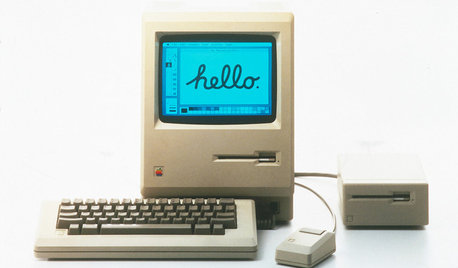
HOME TECHTurn 'Obsolete' Tech Into Fun Home Help
Here's how to put your old Mac, Atari or Newton to work around the house
Full Story
HOME TECH6 Sound Solutions for the iPhone Home
Listen up: An iPhone and one of these stylish audio systems let your music look as good as it sounds
Full Story
MORE ROOMSHome Tech: Getting Rid of Wires Without Sacrificing Sound
Wireless home technology still isn't perfect, but new products are giving audiophiles choices
Full Story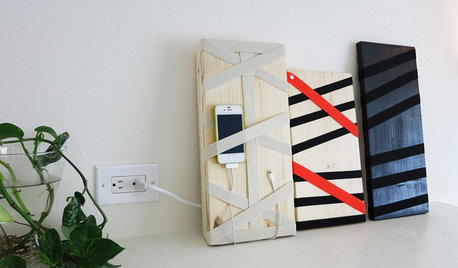
DIY PROJECTSHide All Those Wires in a DIY Charging Station
Keep your gadgets handy and charged with a flexible storage board you can design yourself
Full Story
HOME TECHComing Soon: Furniture That Charges Your Phone
Countertops, tables and home appliances with wireless charging capability mean less clutter — and zero effort powering your phone
Full Story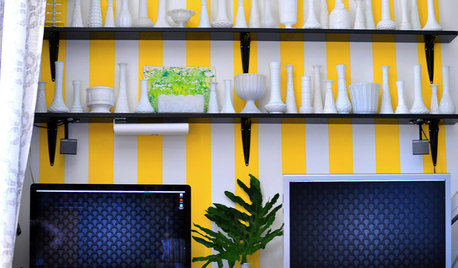
ACCESSORIESHow to Hide Those Messy Wires
Untangle Yourself From Ugly Electrical Cords With a Few Tricks and Accessories
Full Story
HOME TECHBuild a Smarter Kitchen Now With Gadgets You Already Own
Technology can improve your kitchen's efficiency for next to nothing — just look to your old phone or tablet
Full Story
KITCHEN DESIGNSo Over Stainless in the Kitchen? 14 Reasons to Give In to Color
Colorful kitchen appliances are popular again, and now you've got more choices than ever. Which would you choose?
Full Story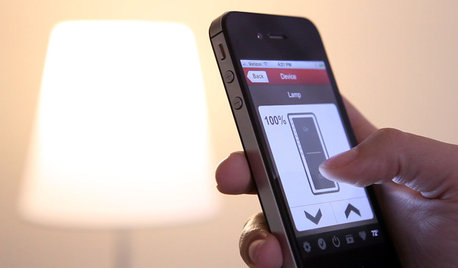
HOME TECHSwitch On the Phone-Controlled Home
Lock your front door from afar, let your thermostat set itself and more when you use your phone as a control device
Full Story
HOME TECHTurn Your Smart Phone Into a Home Security System
Monitor your home a less expensive way by putting your phone and some new gadgets to work
Full Story






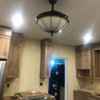
Chemocurl zn5b/6a Indiana
mike_kaiser_gw
Related Professionals
Allendale Home Automation & Home Media · Ashburn Home Automation & Home Media · Asheville Home Automation & Home Media · Birmingham Home Automation & Home Media · Farmington Home Automation & Home Media · Fort Bragg Home Automation & Home Media · Fort Collins Home Automation & Home Media · Glenview Home Automation & Home Media · Pittsburgh Home Automation & Home Media · Richfield Home Automation & Home Media · San Pablo Home Automation & Home Media · Thornton Home Automation & Home Media · Sugar Hill Home Automation & Home Media · Channahon Handyman · Aurora LightingDuneMe
lee676
westom
gabbythecat